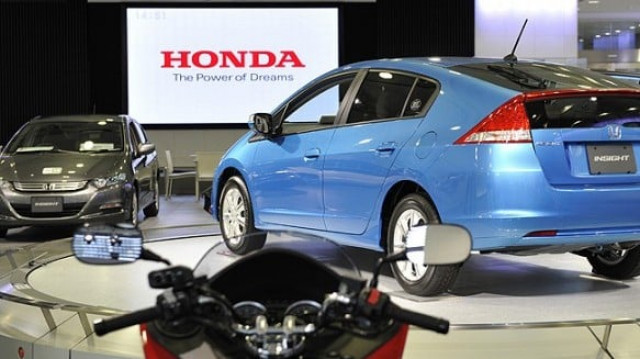Honda reports new exploding Takata-airbag death
Takata is facing the biggest test in its 80-year history with a possible criminal probe as top executives stay silent

The previous four cases happened in the United States, but Honda said one woman died in a July crash after an abnormal rupture of a Takata-made airbag.
"An airbag on one of our vehicles exploded abnormally and a Malaysian woman was killed," said a Tokyo-based Honda spokesperson.
The news came as the car giant announced an additional recall of more than 170,000 vehicles worldwide due to the risk that an explosion could send metal shards from the airbag's inflator hurtling at drivers.
Takata is facing the biggest test in its 80-year history with lawsuits, a possible criminal probe, and accusations of "deception and obfuscation" over the defect.
Millions of vehicles produced by some of the world's biggest automakers, including Honda, Toyota and General Motors, are being recalled over the problem.
Honda has been named in a US lawsuit as a defendant, which alleges it conspired with Takata to hide the flaw for years.
The New York Times has quoted former Takata employees as saying secret tests were conducted a decade ago to investigate the defect, but executives ordered the destruction of data that exposed design flaws.
At least three out of the five deaths "were caused by an abnormal explosion of the airbag, including the latest case in Malaysia", but the other two cases had yet to be confirmed, Honda said.
"We don't know yet if those deaths were caused by the airbag explosion or by other factors involved in the accidents," a company spokesperson said.
Takata's Tokyo-listed shares have lost about half their value since an investigation was opened in June.
Attention has focused on a Takata plant in Mexico, with suspicions the defect may be linked to a chemical propellant used to inflate the airbags which can more easily rupture in areas with high humidity.
Police reportedly investigated at least one driver death in the US as a murder due to woman's grisly injuries, until their focus switched to the vehicle's airbag.
The National Highway Traffic Safety Administration (NHTSA), the US auto safety regulator, has expanded its "urgent" warning to owners of cars with affected airbags to take them to dealers to fix the problem.
Founded in 1933 as a textile company, Takata evolved into an automotive parts giant that started selling airbags in the 1980s and now has dozens of plants and offices in 20 countries, including the United States, China and Mexico.
The airbag division accounts for about 40 percent of its total revenue, which amounted to $4.88 billion last fiscal year.
Takata has warned over a bigger-than-expected annual loss, but its top executives have stayed largely silent on the crisis.



















COMMENTS
Comments are moderated and generally will be posted if they are on-topic and not abusive.
For more information, please see our Comments FAQ